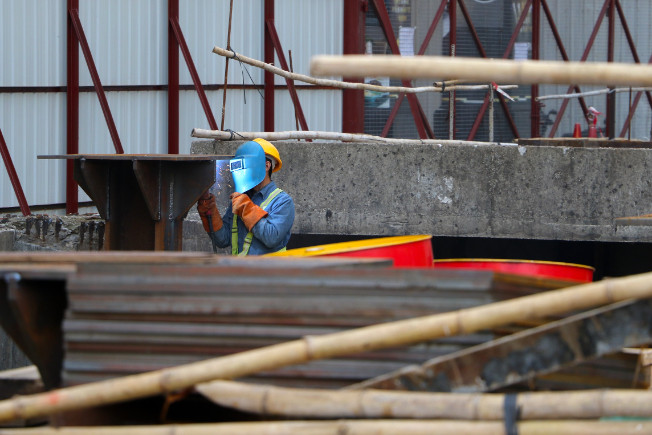Studying in Japan helps you prepare the things you might need and skills you will use. Graduating and working in the same country offers various advantages on the go. Learn more about how studying civil engineering in Japan might help you in the future.
Civil engineering
The study and practice of Civil Engineering covers a wide choice of subjects that makes it one the most versatile and preferred fields of engineering by young students entering college. And that is not surprising as human civilization developed through the structural and civil works that supported the lives and economies of the earliest societies, including, among others, housing, water distribution, roadways and transportation. Even the ancient shipbuilders were involved in basic design and construction techniques that would eventually form the foundation of modern structural design and analysis of various civil and architectural infrastructure, leading into specializations that would be distinct and separate disciplines from Civil Engineering; for example, Architecture and Interior Design. Even today, Civil Engineers proudly refer to themselves as “generalists” for possessing a broad grasp of many fundamental aspects of applied engineering.
Engineering, in short, simply means the economical and efficient use of materials to design and build material structures or machines for human use, such as for habitation and other related purposes. While Civil Engineers are essentially professionals trained in highly technical matters, such as surveying, structural design and analysis of material strength, they are also called upon to supervise and manage the installation or construction of civil works which requires the proper and economical use of different kinds of materials and equipment.

As the profession of Civil Engineering covers a wide variety of applications, it offers the Civil Engineer a vital and respectable role in the fast-changing world. As one of the leading highly-developed industrial nations, Japan depends greatly on the skills and talents of Civil Engineers in its various dimensions. In particular, Japan’s reputation as a country prone to the damages of earthquakes has led to the development of efficient techniques in structural design and safety measures that allow tall structures to roll safely on giant bearings or dynamic foundations, absorbing the seismic energy, weakening the force of it and preventing damage to the integrity of such buildings.
Writer's Pick
Study civil engineering in Japan
Many universities and colleges in Japan offer excellent education in Civil Engineering while providing modern and stimulating academic venues, particularly for overseas students with exposure in multinational universities. The University of Tokyo, for instance, aims to fill its quota of world-class future professionals in its Department of Civil Engineering through administering its proprietary admissions test procedure, which is quite similar to its standard admissions exam. This helps applicants from overseas to take the test in their own countries without having to travel. This not only facilitates the process of recruiting qualified candidates to the program, it also widens the field from which the best and brightest in the world can be given opportunities to hone their aptitudes and stimulate their creativity at choice universities in Japan.
There are several types of scholarships overseas students can avail of when applying to a Civil Engineering program in Japan. Here is a short list to choose from:
1. Ministry of Education, Culture, Science, Sports and Technology of Japan (MEXT) Scholarship
To avail of the MEXT Scholarship, an applicant must secure a recommendation from the university which offers the program. Applicants must be less than 35 years old as of the April 1st of the enrollment year. Only individuals who come from countries with existing diplomatic ties with the Japanese government are entitled to this scholarship.
2. ADB (Asian Development Bank) - Japan Scholarship Program
Scholarship applicants need to obtain a recommendation from the Department of Civil Engineering of the concerned university. ADB will select awardees based upon who will pass the qualifying tests administered by the university and who are duly recommended to ADB for admission to the scholarship.
3. UEDA (University Economic Development Association)
Scholarships for graduate studies in Civil Engineering are also offered through MEXT and ADB sponsorships, with the prerequisite recommendation of the concerned university. Applicants to University of Tokyo, for instance, must apply through their online app “T-cens” dedicated to their School of Engineering.
A primary benefit that international students obtain from studying in Japan is the solid and suitable foundation needed to eventually work in the country after finishing one’s Civil Engineering degree. Moreover, learning to speak the Japanese language and immersing in the whole cultural, artistic and technological aspects of the country will deepen one’s appreciation of one’s calling and role in the vast, exciting world of infrastructure and urban development. Moreover, a thorough grasp of the language allows individuals to qualify for higher managerial jobs in the future.
Jobs for civil engineers in Japan

There are several types of jobs in which Civil Engineers can find fulfilling and high-paying jobs in Japan. For instance, as Construction Managers, aside from dealing with materials and equipment, they must also manage people well and coordinate their work through efficient use of time, materials and equipment. This applies whether the structure being built is a bridge, a skyscraper, a highway, a dam or a golf course.
Civil engineers can also work as Sanitary or Public Health Engineers, a type of work involving the design, construction and operation of water distribution systems and water treatment plants which can serve a small town, a whole city or a big metropolis.
Another field of Civil Engineering is that of Environmental Engineering, which is involved in protecting, preserving and conserving the natural landscape in order to make it livable and conducive to human life and development.
Civil Engineering is also applied in Urban Planning which requires the design and development of large towns and cities with specific emphasis on the proper usage of land, sufficient configuration of transportation lines, intensive care and preservation of natural and artificial waterways and systematic zoning of housing, industrial and commercial areas.
Transportation Engineering is another major field worth the time of a budding young engineer, especially if he or she grew up playing with toy cars or race-car computer games, or just riding along or appreciating the vast highways, complex elevated interchanges and magnificent suspension bridges in large developed foreign cities.
To qualify to be accepted in Civil Engineering programs in Japan, applicants must be foreign students who do not possess permanent residence status in Japan. One must not be presently living in Japan and must have the facility to engage in academic endeavors in the English language. For those desiring to take a master’s or a doctorate degree in Civil Engineering, 16 or 18 years of undergraduate education are required, respectively. One need not have finished undergraduate schooling in Japan.
Summary

Master builders, from the humble carpenter to the lowly mason worker, have provided human communities a valuable service that remains a fundamental requirement for social and economic progress. Today, it takes a Civil Engineer to coordinate the many elements of design, construction and implementation of intricate infrastructure, human habitation and environmental systems that allow societies to exist and thrive in the modern technological world. Japan is at the forefront of this vision to build a better, safer and more comfortable world.


































